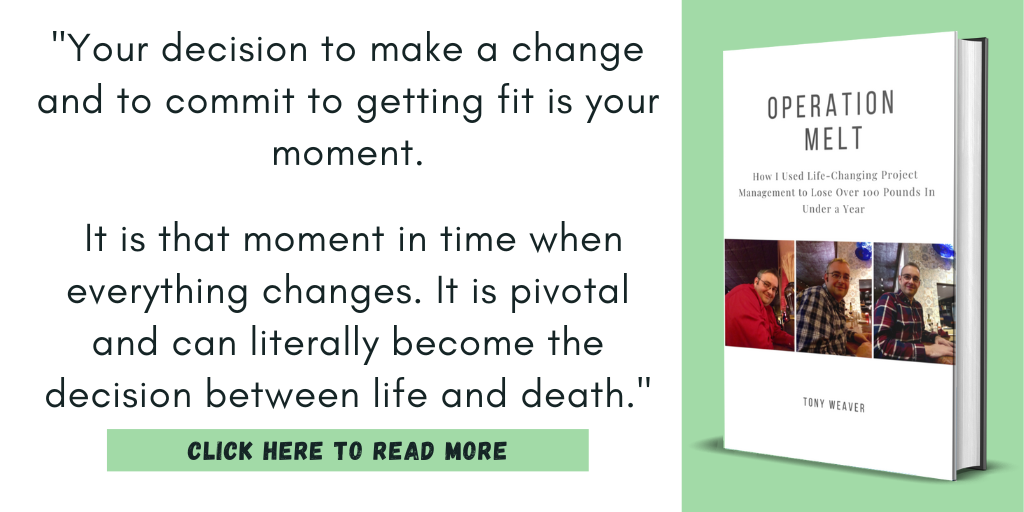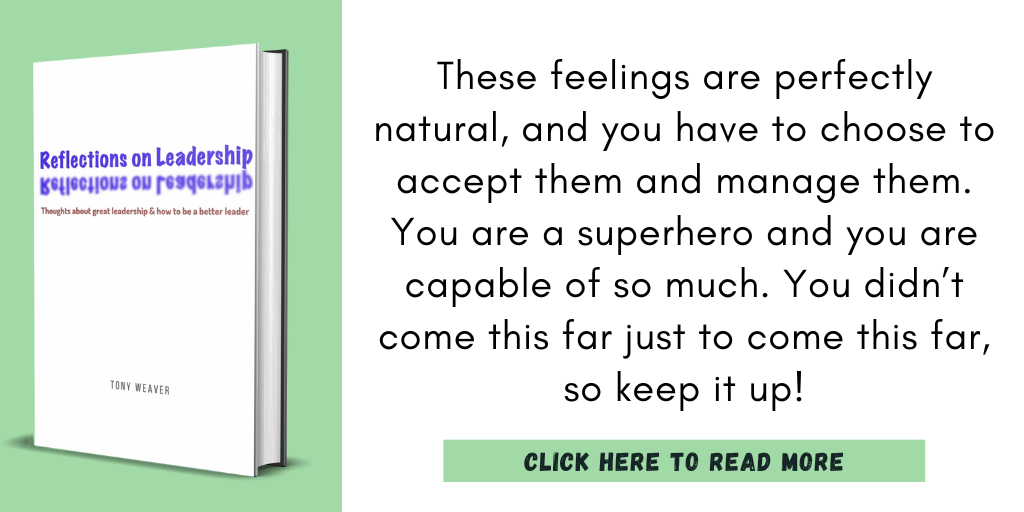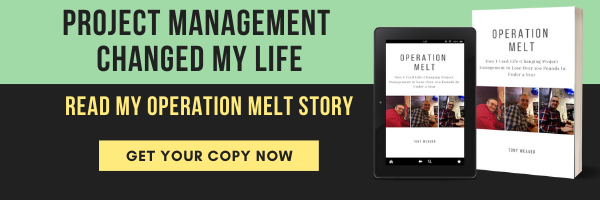What kind of friend do you want to be? Do you want to be a source of support and positivity who lifts your friends up? Then why are you acting like a jerk to your most important friend? With a couple of simple strategies and lots of practice, you can turn the situation around.
Learn more in this week’s Goal Success by Choice.
Amuse Bouche
Before we get to today’s post, I offer you this light “amuse-bouche” to entertain your mind before we get down to business. Like any other amuse-bouche, you may hate my “dad joke,” but it is worth every penny that you paid for it, right?
How can you drop a raw egg onto a concrete floor without cracking it?
Any way you want, concrete floors are very hard to crack.
Goal Success by Choice
Do you have dreams that you are trying to make come true? Do you have a goal that you are trying to crush? Success doesn’t happen by chance. Success is a series of choices that can make you unstoppable. Goal Success by Choice helps you make these choices to move you closer to your goals.
Are you ready to help build a world where no goal dies of loneliness?
Stories Are Powerful, What Happens When Don’t Love Yours?
Talk to yourself like a cherished friend. Treat yourself with love and care. You are perfect, just as you are.
Amy Leigh Mercree
Welcome to this week’s Goal Success by Choice post.
Continuing my theme from my previous blog, I will continue talking about the power of how we tell our stories this week. In case you missed it, don’t forget to check out my prior post, Stories Are Powerful, What Happens When Don’t Love Yours?
Let’s start off by picturing yourself as the main character in three short vignettes.
Bumping Into Julie
You wake up full of energy about five minutes before your alarm goes off. So you hop out of bed excited to face the day. Your plan for today includes lots of things you love doing at work and in your personal life. Plus, you have ample breaks in your calendar. It is essentially the perfect schedule.
It is a beautiful spring morning in late April. The sun is coming up, there’s not a cloud in the sky, it is already sixty degrees, and the birds are chirping a magical song that seems to say, “come out and play!” You have plenty of time, so you get dressed and head out for an early morning walk with nature and to grab a cup of your favorite coffee and your local shop.
With coffee in hand, you start your walk back home to get your day started. Unexpectedly, you see your good friend Julie who clearly had the same morning plan you did. You walk over to her and say “good morning” and ask how she is doing on this beautiful morning.
After Julie answers that she is doing great, you say to her, “wow, you look kind of ugly today! Your hair is a mess, and you really need to get it done. That outfit… well, it looks dumb on you, and you definitely can’t pull it off. Are you putting on weight? You are definitely not as pretty as that girl over there!”
Coffee With Roger
You glance at the clock, and it is about a quarter to ten on Wednesday morning, just fifteen minutes until your weekly coffee date with your friend Roger. You head over to your favorite coffee shop, where you arrive a few minutes early. You get a steaming cup of dark roast and grab your usual table in the front windows where you can watch the world go by.
A couple of minutes later, Roger walks through the door and shoots a smile your way. He walks up to the counter, grabs a coffee and walks towards your table. You say your hellos and good mornings as he takes his seat.
As your conversation gets started, Roger says, “I am kind of feeling let down today. That promotion that I expected at work didn’t happen.” He says he doesn’t know why he didn’t get the expected promotion and is clearly frustrated.
You offer him your perspective on the situation, “well, Roger, I just don’t think you are very good at your job. All of your coworkers know it. How are you the only one who doesn’t? How could you have thought you would get promoted? I think you should probably consider giving up on this line of work and figure out something else.”
Early Night with Allison
Friday is here, it is five o’clock, and the workweek is done… halleluiah! It is time to get this weekend started, and you are looking forward to meeting your best friend Allison for happy hour.
You hop in your car, drive home and quickly change into your “going out” clothes; you are ready for a big night of fun, junk food and lots of drinks. You are planning so much fun that you have decided to leave your car and home and head out on foot to meet Allision. You can walk or Uber home later.
When you arrive at the bar, Allison is already there drinking some light vodka and soda thing. You order a martini and let the good times roll. You talk about the week’s events, have some great laughs and do a fair amount of people-watching. You even grab a snack to help absorb your alcohol so you can ensure this night is a marathon and not a sprint.
Around 7, you and Allison are about to finish your second drink. You tell Allison, “the next round is on me!” But Allison has other plans and tells you, “I’m actually going to need to stop at two drinks and make it an early night tonight.” “You’re kidding! Why?” you retort back. Allison explains to you that she is training for an upcoming marathon. She has an early, long training run in the morning, and she wants to be ready for that.
“Marathon?! You aren’t a runner! What makes you think that you will ever run a marathon? I have known you for years, and the only marathon I’ve seen you finish involves television and drinks. C’mon, stay for another round; screw that marathon nonsense!”
So, How’d You Do?
Did those scenarios make you uncomfortable?
Pause and reflect on those stories and the role you played in them. How’d you do? How would you rate your performance?
Not good?! But why?
Do you think you were rude or insulting?
How about unsupportive?
Was your character just plain mean?
How do you think the other person in the story walked away from the conversation? Did they feel supported and loved?
Do you think the friendships continued after these exchanges? Why not? Is it because you were kind of a crappy friend in these exchanges?
Would you ever treat a friend like this?
If you wouldn’t say rude, insulting and unsupportive things to a friend, why the hell do you say them to yourself?
Thank You for Being a Friend… To You!
I know what you may be thinking… “What?! How did he know that you say these things to myself? I have never admitted it out loud!”
Spoiler alert: I am not a mind reader.
We all have a tendency to undermine ourselves with our self-talk.
While common and non-intrusive to other people, this behavior is hazardous to your own happiness. As I explained in The Brain’s Owners Manual Should Include 1 Important Warning, your brain believes what you tell it. When you are telling it that you look like crap, don’t deserve that promotion or are a marathon imposter, that’s the reality that your brain will cling onto. So, don’t do that!
It’s sad but true; we don’t treat ourselves as friends. We say things to ourselves, about ourselves that we would never say to other people.
Changing The Story
Seriously, it doesn’t have to be this way. You don’t have to treat yourself like a lesser person than you would treat your friends. You can be a friend to yourself, but it is going to take a little work. It isn’t complicated work, but it requires diligence.
Discipline
Broken record time…
The first step to changing the awful things you say to yourself is the same as improving any other aspect of your life. Step one is to replace your default and autopilot behaviors that aren’t working for you with disciplined behaviors that will (see Discipline Not Default).
Like any other achievement in life, this starts with a decision to try. Make a decision today that you are committed to changing the things you say to yourself. Once you have made this decision, choose not to simply coast through your conversations with yourself any longer; make an active choice to be positive and supportive of yourself.
Pro tip: an effective method to prevent yourself from slipping back into default behavior is tracking your wins and losses. By establishing a daily journaling practice, you have an ideal venue to reflect on times when you were a friend and a jerk to yourself.
Awareness
After you have decided to approach your self-talk with discipline, the next step is to pay attention. By listening to that voice in your head, you can build an awareness of when you have an opening to say something to yourself. I know that sounds strange, but our self-talk autopilot is so powerful that we seldom even know that we are talking to ourselves until it’s too late. By slowing down and paying attention, you can interrupt the habit and identify the pivotal moments where disciplined self-talk is needed.
Pro tip: one of the goals of meditation is to help you build an objective awareness of your thoughts. By practicing meditation, you can get better at paying attention to your moments of self-talk.
Replacement
Once you have identified a moment when self-talk is about to happen, you can actively choose how you talk to yourself. You can replace the previously unsupportive self-talk with new messages. Ask yourself how you would respond to a close friend in this moment, then respond to yourself like that.
This sounds too simple, right? When you are rewiring a habit, simple isn’t a bad thing. Simple steps mean that you are less likely to get overwhelmed and abandon your goal.
Simple steps aren’t always easy to execute; just look at weight loss! Similarly, this isn’t going to be easy at first, but with practice, you will build skill and become an expert at being a friend to yourself.
Pro tip: not sure what you want to say to yourself in place of these habitual negative comments, choose some affirmations. Spend a little time writing out messages that you feel are important for you to hear. When you encounter one of the pivotal moments when you have the opportunity to be a friend to yourself, you will have a few go-to replies.
Kindness
Because rewiring your self-talk isn’t easy, you aren’t always going to get it right. There will still be moments when you treat yourself like an idiot instead of a friend. This is normal and not a sign that you suck. So, be ready for some failures along the way and respond with kindness.
When you catch yourself being unsupportive instead of a friend, make a note of it. Then, quickly tell yourself that it is ok, you are growing and will do better next time. Unless you quickly engage negative self-talk with positive self-talk, you risk getting into an unhealthy negativity spiral. Ain’t nobody got time for that!
So What?
What kind of friend do you want to be? Do you want to be a source of support and positivity who lifts your friends up? Then why are you acting like a jerk to your most important friend? With a couple of simple strategies and lots of practice, you can turn the situation around.
Need a little help getting this friendship back on track? Let me be your partner.
Click Here to learn more about my Operation Melt coaching services.
Beware of the Robots!
Was this post helpful or interesting to you? Do you want to read more? Don’t trust it to the social media algorithms.
Defeat the robots by joining my email list below and get these posts delivered directly to your inbox every week.





 Meet Coach Tony
Meet Coach Tony